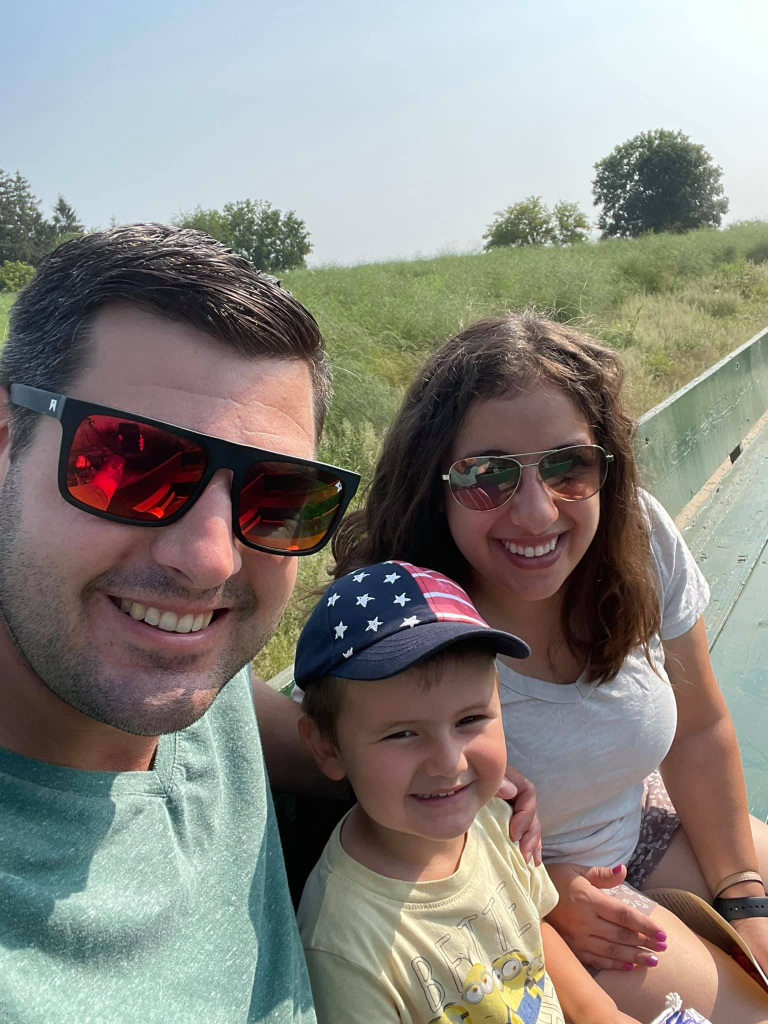
Fatooma Saad views her research as a potential change agent for military service members balancing their careers and families.
Saad, a master’s student in the College of Fine, Performing and Communication Arts, has focused her thesis on exploring the experiences and retention-related decisions of women in the military. The topic is of great personal interest to Saad, who is veteran of the U.S. Marine Corps (USMC) and whose husband is a retired Marine. Saad’s research was conducted under the direction of her master’s thesis advisor, assistant professor of communication Dr. Jessica D. Moorman.
The military is a traditionally and predominantly male industry, and the Department of Defense (DOD) has identified the recruitment and retention of women to be a priority in attempts to diversify. However, women are 28% more likely to leave military service than their male peers according to the Government Accountability Office. Saad views her scholarship as an avenue to understand — and potentially remedy — that discrepancy.
“The Department of Defense has over 2.5 million employees worldwide between active-duty, reserve and civilian members, and although they may not contextualize themselves as the world’s largest employer rather than just an extension of the federal government, they have an incredible opportunity to be a leader in workplace change,” Saad said. “Family planning, lack of childcare and sexism are factors that may influence a woman’s decision to leave the military. All of those factors are deeply personal, and the lived experiences of military women should play a role in the military’s policy decisions.”
Listening and learning
Saad’s research employed qualitative methods and included in-depth interviews to better understand the impacts of unit-level implementation of family-related policies on retention choices among women in the military. She spoke with 22 current and former members of the U.S. Marine Corp and the U.S. Air Force; all of the participants were mid-career rank or above, with anywhere from 5 to 20 years of service. Half of the participants were dual-active, meaning they and their partner served concurrently in the military.
Findings indicated that many participants found inconsistencies in leadership interpretation of family policies to be a challenge, especially considering that military members typically spend two to three years at a particular station and might have different experiences with policy interpretation and enforcement as their families grow. Another challenge was rigid maternity leave timing, which forced some new moms to return to work before they were able to meet the physical demands of service or limited others who were ready to return sooner from completing necessary training and professional development in a timely manner. Other challenges centered around the inaccessibility and inconsistent quality of on-base childcare, as well as concerns about the definitions of “primary” and “secondary” caregivers.
“Ultimately, the women I spoke with were seeking flexibility and compassion from their leaders,” Saad said. “Those who had understanding leaders that felt empowered to use discretion for each individuals’ circumstance had a higher level of satisfaction and balance, and were most likely to stay.”
For Saad, one impactful finding was the feeling among participants that their experiences weren’t of concern until they made peers slightly uncomfortable, such as calling attention to a need for private spaces to pump breastmilk.
As a veteran who left the military before having a child, Saad said hearing about such experiences reaffirmed the need for her research, and was an opportunity for her to reflect on her own privilege.
“I was able to dictate my own working mother experience. When I had my son, I was working in the private sector — I had read all the blogs and thought I was ready to tackle the world when I returned to work … and then, I was asked to pump in a bathroom,” Saad said. “I eventually found a mutually agreeable solution with my boss, but I know that this is an experience so many women have. Not every woman — especially those under military contract — have the same privileges I did to advocate on behalf of themselves and their families.”
Looking ahead
Saad plans to expand on her research this fall as a Ph.D. student to broaden the scope of scholarship on the topic. She said most of the existing literature around military retention and servicemembers’ experiences is funded by the military or its partners.
“As a publicly funded entity, the Department of Defense should welcome the opportunity to make the military a leader in workplace inclusivity. Changes in this industry have the potential to set the standard for others. If the DOD can adapt to become more family friendly, everyone else should be able to follow,” Saad said.
Most importantly, though, Saad is excited to continue giving military women a voice through her research.
“As a female veteran, I want to ensure that I do good with their trust. This isn’t just a research project for me. I know that their lived experiences can have value and influence real change — they just need to be heard.”
